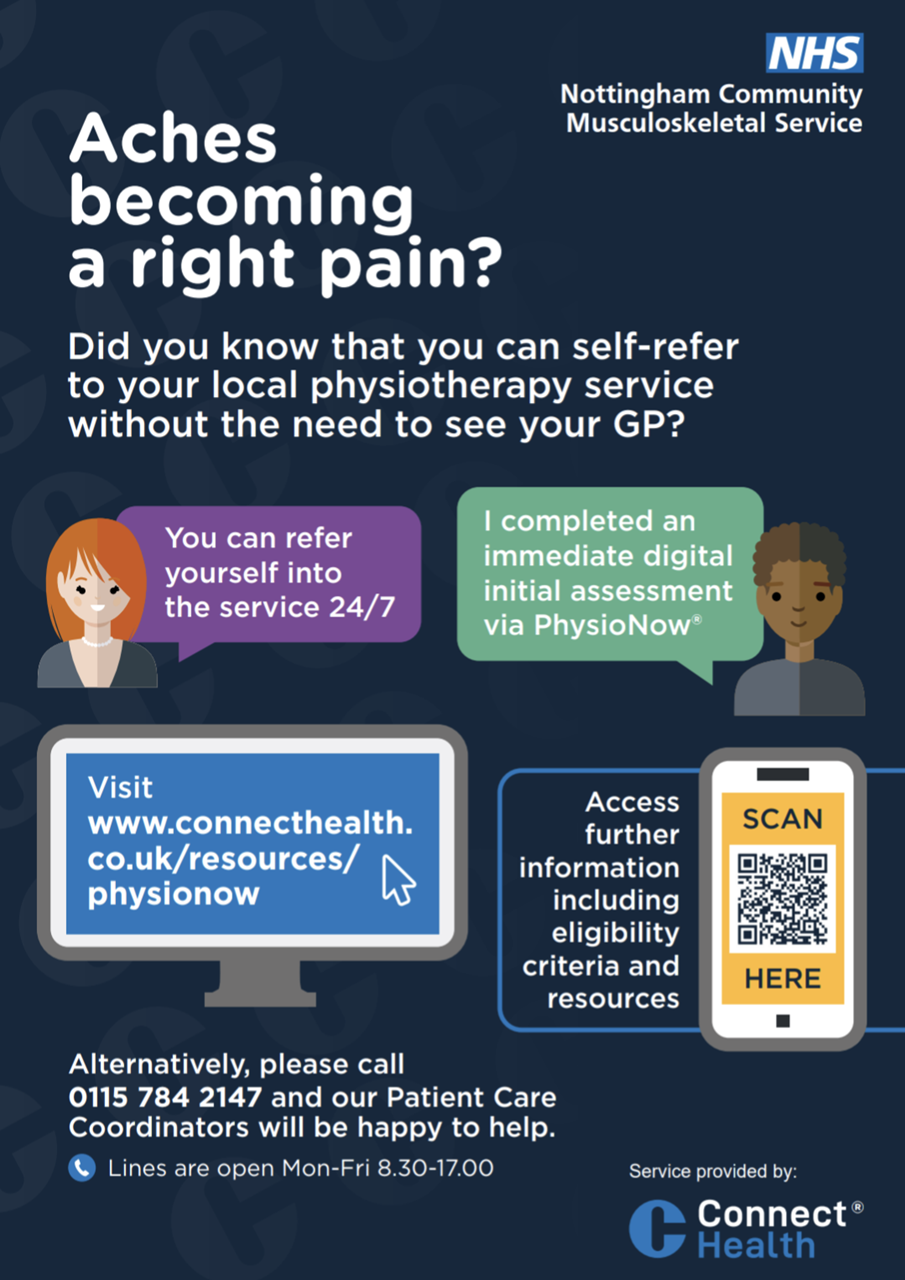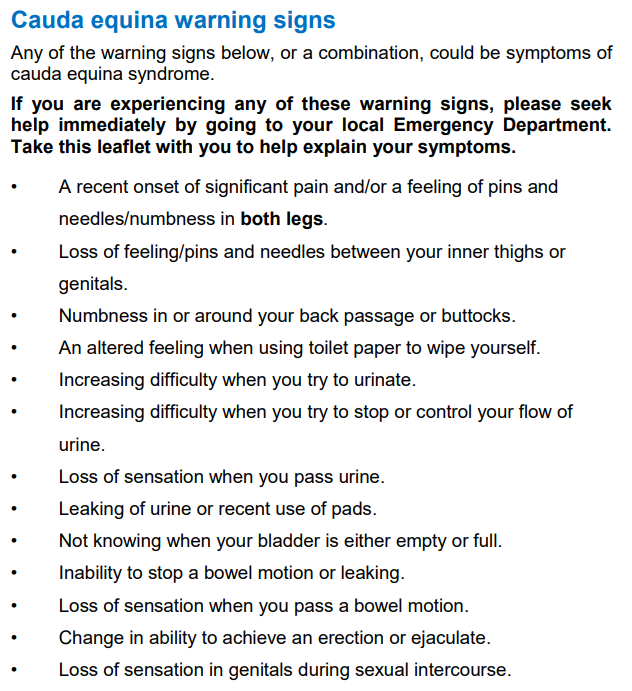Musculoskeletal

Self refer physio
Self refer to a NHS physiotherapist
You can now self refer for physiotherapy without speaking to your GP or first contact physiotherapist:
Ring: 0115 784 2147
Website: https://www.connecthealth.co.uk/services/nottingham/
First Contact Physiotherapist
You can make an appointment with one of our specialist First Contact Physiotherapists for assessment of many spinal, joint and muscle related problems.
They are experts on the diagnosis and treatment of many common problems.
They will be able to liaise with the GP should you require any medication, a test, or further input.
Appointments are available daily.

Cauda Equina

Information Leaflets & Exercises
Painkillers
Over-the-counter painkillers can be purchased relatively cheaply at pharmacy or shop without needing a prescription from your GP. These include paracetamol, ibuprofen, low-dose codeine and aspirin. Some of these cannot be taken if you have a history of stomach ulcers, bleeding and kidney problems.
Please speak to the pharmacist before purchasing, to check you can take it.

Pain Toolkit
All about chronic pain and living with pain.
They have online workshops and videos to understand pain and how to live and adapt to it.
Take a look at: https://www.paintoolkit.org/
Information about prescribed painkillers
Opiates in Chronic Pain
OPIATES FOR CHRONIC PAIN - THERE IS ANOTHER WAY:
Opiates include medication such as codeine, tramadol, morphine.
Opiates are very good for acute pain and for pain at the end of life, but there is little evidence that they are helpful for long-term pain.
The risk of harm increases substantially with higher doses of these medications, but there is no increased benefit.
Patient in chronic pain need specialist input from a chronic pain service.
Joint Injections
We offer joint injections - we kindly ask you to speak to our dedicated reception team, who will be happy to assist you further.
Page created: 13 July 2020
